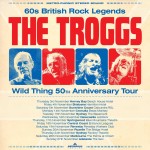How Did Townes Van Zandt Die? What You Need To Know About His Legacy
Many people still wonder, ‘How did Townes Van Zandt die?’ up to this day. It’s no wonder why – after all, this Texas musician has since become a folk legend in the industry and many are curious about the events that led to his passing.
At Jukebox Saturday Night, honouring musical greats is part of how we keep their memory alive. That’s why we’re here to answer your questions about them, whether it’s ‘How did Townes Van Zandt die?’ or other queries like ‘What happened to the Beatles?’ and ‘Where is Sade now?’
So, there’s no need to keep searching for terms like ‘cause of Townes Van Zandt death’ or ‘passing of Townes Van Zandt folk singer’. Instead, read on as we explore not just his death but also what came before it – a life full of impactful music and lasting influence that remains present even years after he joined the many late stars in R’n’R heaven.
How did Townes Van Zandt die?: Van Zandt’s cardiac arrhythmia
Ultimately, what killed Townes Van Zandt was a natural cardiac arrhythmia. However, many fans were still left wondering, ‘How did Townes Van Zandt die?’ because what exactly caused the cardiac arrhythmia was unclear.
While there is no straightforward answer to what caused it, it’s clear that the series of events that led to his passing started when Van Zandt fell down the concrete stairs outside his home, resulting in an impacted left femoral neck fracture.
Following this injury, he underwent several corrective surgeries. Unfortunately, his post-surgery condition was exacerbated by the effects of his years of substance use issues, and on New Year’s Day of 1997, it was shortly after these procedures that Van Zandt succumbed to the arrhythmia.
The music magic that came before
Van Zandt’s legacy, however, is more than his death. It’s one that’s filled with music that shaped country music as we know it. With an influence that strong, it’s no wonder that his passing was felt deeply in the music community and that people are still asking, ‘How did Townes Van Zandt die?’ to this day.
Marked by his emotionally powerful vocals and his skilled fingerpicking guitar style, his work continues to resonate across genres, earning him not only the admiration of fans but also the respect of his peers.
But what set Van Zandt apart the most was his songwriting. When people hear ‘Townes Van Zandt music’ the first thing they think of is his timeless and extremely resonant lyrics.
He was dubbed as a ‘songwriter’s songwriter’ because of this talent that many of his peers praised. In fact, singer songwriter Steve Earle, another country legend, saw Van Zandt as a mentor in that regard, saying, ‘As a songwriter, you won’t find anybody better.’
Van Zandt’s music has been covered by numerous notable country and folk artists, such as Merle Haggard, Willie Nelson, Emmylou Harris, Bob Dylan and many more. But his influence never stayed within the confines of his genre. It expanded to rock, blues and other musical forms.
It’s clear that even though Van Zandt never achieved colossal mainstream success, his legendary status has never been up for debate. He constantly made evocative songs, inspired and influenced legends across the industry, and raised the bar for songwriting. Ultimately, it did not matter that the charts didn’t reflect what critics, fans and fellow musicians knew: Van Zandt was a timeless visionary.
Keeping his memory alive
The impact of Van Zandt’s has been so crucial to the industry that it’s been commemorated through various media. These didn’t just answer questions like ‘How did Townes Van Zandt die?’; they also explored his life and legacy.
In 2004, the film Be here to love me was released, chronicling Van Zandt’s life and career. The documentary was well-received among critics and fans, who praised it for its candid yet sympathetic portrayal of both his feats and struggles.
Two biographies were also published shortly after his death. John Kruth’s To live’s to fly: the ballad of the late, great Townes Van Zandt came first in 2007. Then, it was followed by Robert Earl Hardy’s 2008 biography, A deeper blue: the life and music of Townes Van Zandt.
On the 15th anniversary of the singer’s death, Brian T. Atkinson released I’ll be here in the morning: the songwriting legacy of Townes Van Zandt to commemorate the late artist’s lasting influence. It includes interviews with longtime friends and fellow musicians, such as Guy Clark and Billy Joe Shaver.
Frequently Asked Questions (FAQ)
What did Bob Dylan say about Townes Van Zandt?
In his 2022 book, The philosophy of modern song, Dylan mentions that one of the measures of a songwriter is whether or not the songs they’ve written are still being performed to this day. ‘Townes’ are,’ the singer wrote. ‘Every night – in small clubs, in lonely bedrooms and wherever the brokenhearted watch the shadows grow long.’
What was Townes Van Zandt’s last performance before he died?
Another reason many people were left wondering, ‘How did Townes Van Zandt die?’ was because it happened so shortly after his last performance. The final time he took the stage was at The Borderline in London on December 3, 1996, less than a month before his passing.
What are some of Townes Van Zandt’s most famous songs?
When it comes to the Townes Van Zandt greatest hits, the first that comes to mind for many is ‘Pancho & Lefty’. While the track didn’t get much recognition during its release, it eventually landed on the top of the country charts when Willie Nelson and Merle Haggard covered it, making it a seventies jukebox classic.
While it was their version that popularised the song, there’s no doubt that Van Zandt’s songwriting played a huge part in its success. Steve Earle even once said, ‘You won’t find a song that’s better written, that says more or impresses songwriters more.’
Other tracks that went on to be Van Zandt’s most notable songs are ‘For the sake of the song’ and ‘If I needed you’. Both tracks were also covered by fellow artists in the years that followed their releases.
Rock out to music’s greatest
It’s time to rekindle the magic of the retro music Jukebox Saturday Night, where we love looking back on the tracks that shaped music as we know it today.
Catch rare clips of groovy acts, from forgotten 70s bands to icons like Billy Thorpe and the Aztecs on our program on Foxtel, Aurora Channel 173 from 7.30 p.m. to 8.30 p.m. on Saturday Nights. We even air replays of the program on Sunday nights at 9.00 p.m. and Tuesday nights at 9.30 p.m., so no one misses the chance to rock out with us.
Take a trip down rock and pop music’s memory lane with Jukebox Saturday Night!
Disclaimer: The information provided is for educational and entertainment purposes only. While we strive for accuracy, music history is often based on available documentation and interpretation.



